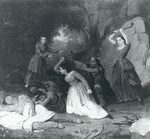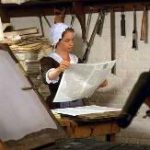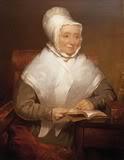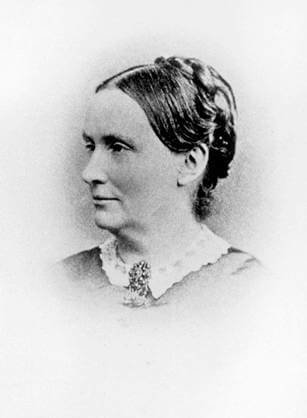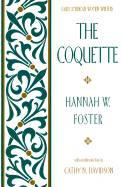Early Women’s Rights Advocate
Hannah Lee Corbin, Virginia’s earliest known proponent of voting rights for women was born on February 6, 1728, in Westmoreland County, Virginia. Hannah was the oldest daughter of Hannah Ludwell Lee and Thomas Lee, a prominent member of the House of Burgesses and later acting governor of the colony. In 1717, Thomas Lee had purchased the land for Stratford Hall Plantation, and he had the brick Georgian Great House built during Hannah’s childhood years.
Thereafter, the Lee family lived in the elegant mansion on the Potomac River, where Hannah received an education far superior to that of most young women of her day, studying alongside her brothers in Stratford Hall’s small brick schoolhouse. Intellectually curious, Hannah read everything she could find in her father’s library on law, politics, history, literature, and religion.
In 1748, Hannah married Gavin Corbin and moved with him to Peckatone, a large plantation about twenty miles downriver from Stratford Hall. Gavin died in the winter of 1759-1760, leaving Hannah a widow at age thirty-two to manage Peckatone and raise their daughter, Martha. The plantation records reveal that she was a skilled businesswoman, whose brothers often sought her advice on business matters.
Religious Beliefs
In 1760, Hannah was swept up by the religious revival movement known as the Great Awakening and joined the Baptist church. Her conversion from the Anglican faith, the only legal church in colonial Virginia, to what was considered a dissenting religious group proved disconcerting to her family and neighbors.
Hannah was reported to the colonial court of Westmoreland County for not attending the established church. She refused to pay the court’s fine, even though her brother, Richard Henry, was in charge of the court. Hannah wrote to her sister that she felt that being a Baptist was akin to the suffering saints who throughout history have either been considered enthusiasts or hypocrites.
Because marriages performed by Baptist ministers were not legal in Virginia until 1780, Hannah’s union with local physician Dr. Richard Lingan Hall was never recognized by the state. They had two children and were well respected by the community.
When the American Revolution began in the mid-1770s, Hannah, again a widow, was enthusiastic. Several of her brothers were political leaders; two of them – Richard Henry Lee and Francis Lightfoot Lee – helped write and were the only brothers to sign the Declaration of Independence. Richard Henry devoted his life to politics and spent a great deal of time away from his plantation.
Women’s Rights in the New Nation
During colonial times, some women paid taxes and were thus able to vote – except in New York and Virginia. The Revolution was a period of progressive thinking about women’s rights, and Hannah expected the Revolution to prompt a change in the law regarding the status of women, particularly the position of widows and single women.
In March 1778, Hannah wrote to her brother Richard, then a member of the Continental Congress, and asked him to work with his fellow revolutionaries to give women in the state of Virginia the right to vote. She complained that independent women – widows and single women – suffered from taxation without representation as well.
In the letter, she stated that Virginia was pursuing political taxation and restriction policies against widows that not even the English had enforced. If women were not to be granted political rights, she believed they should be exempted from paying all property taxes.
Excerpt of letter from Richard Henry Lee to his sister Hannah Lee Corbin, March 17, 1778:
You complain that widows are not represented, and that being temporary possessors of their estates ought not to be liable to the tax. The doctrine of representation is a large subject, and it is certain that it ought to be extended as far as wisdom and policy can allow; nor do I see that either of these forbid widows having property from voting, notwithstanding it has never been the practice either here or in England.
Perhaps ’twas thought rather out of character for women to press into those tumultuous assemblages of men where the business of choosing representatives is conducted. And it might also have been considered as not so necessary, seeing that the representatives themselves, as their immediate constituents, must suffer the tax imposed in exact proportion as does all other property taxed, and that, therefore, it could not be supposed that taxes would be laid where the public good did not demand it.
This, then, is the widow’s security as well as that of the never married woman who have lands in their own right, for both of whom I have the highest respect, and would at any time give my consent to establish their right of voting… A very considerable part of the property I hold is, like yours, temporary for my life only; yet I see the propriety of paying my proportion of the tax laid for the protection of property, so long as that property remains in my possession and I derive use and profit from it.
When we complained of British taxation we did so with much reason, and there is great difference between our case and that of the unrepresented in this country. The English Parliament nor their representatives would pay a farthing of the tax they imposed on us but quite otherwise. Their property would have been exonerated in exact proportion to the burdens they laid on ours. Oppressions, therefore, without end and taxes without reason or public necessity would have been our fate had we submitted to British usurpation.
In his response, Richard did make the point that in his opinion widows should not be discriminated against, but should have equal rights with men in property and voting. Although widows and spinsters who possessed sufficient property were not prevented by law from voting, as Richard stated in his letter, “it has never been the practice either here or in England.”
Richard had expressed sympathy with Hannah’s position, but did not see how she could be excused from paying for government services through taxes. He did, however, agree in principle with her contention that women should be able to vote for the county officials who levied local taxes.
Hannah Lee Corbin died in the summer of 1782, before the U. S. Constitution was adopted. The Continental Congress left the question of the vote to the individual states, and Virginia rescinded women’s right to vote shortly after the Constitution was ratified.
SOURCES
Vindicating the Founders
Richard Henry Lee Letter
rbc.edu: Businesswoman and Women’s Rights Advocate – PDF FILE

